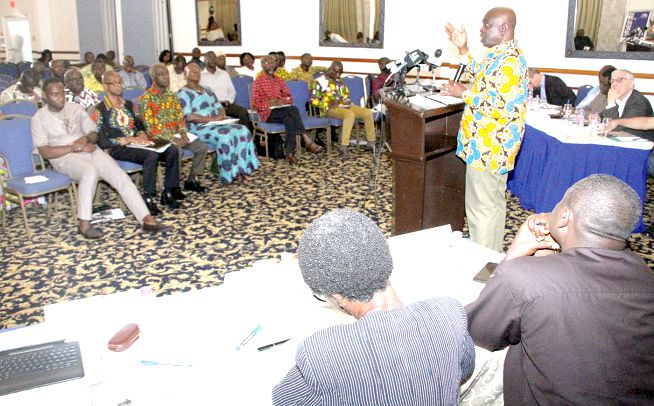
Merge for stronger voice; Activists charge labour unions
Labour activists have called for mergers among labour unions in Ghana to give them a stronger voice to fight for the interest of workers.
The fragmentation of labour unions, they said, was counter-productive, since it deprived the unions of the needed force to push for better conditions for employees.
The activists include the Secretary General of the International Trade Unions Confederation (ITUC), Mr Kwasi Adu Amankwa; an Associate Professor at the Department of Labour and Human Resource at the University of Cape Coast (UCC), Prof. Akua Britwum, and the Head of the African Department of the Friedrich-Ebert-Stiftung (FES) in Berlin, Dr Manfred Ohm.
In separate statements, they stressed that given the dynamics on the labour front, such as increasing informalisation of work, the gradual shift towards the use of contract workers and the displacement of labour through technology, it had become imperative for labour unions to work together to protect their members from exploitative tendencies by employers.
The activists made the call at a dialogue organised by the FES and the Trades Union Congress (TUC) to mark the TUC’s Golden Jubilee.
The dialogue was on the theme: "50 years of promoting democracy and social justice" and brought together leaders of labour unions and other activists.
Mergers key
Prof. Britwum stressed that the mergers were necessary if unions wanted to avoid going extinct or becoming pale shadows of themselves.
“Today, the question of union viability and survival is more urgent than ever before. We know that many unions are at various stages of mergers, but they have to be fast about it because the time for rivalry is over,” she stressed.
She added that splits by labour unions were tools that militated against the interest of workers and that the way forward was for mergers to be prioritised to reverse the trend.
“The point is that merging and mergers will only be meaningful when they build strong societies that put human beings before profit, so that the outcomes should be a redirection of national policies about work towards achieving greater social benefits for people,” se noted.
Prof. Britwum said when labour unions merged, they could deal with the myriad of challenges confronting workers, such as informalisation of work, contract and casual working.
Action
For his part, Mr Amankwa said the call for mergers was long overdue and called for immediate steps to be taken for such consolidations to take place.
He stressed that the fragmentation of unions only created room for workers to be deprived of their entitlements and the protection they deserved.
"At the last count, there were about 150 unions, with many of them having less than 100 members and can barely stay relevant. If you say you are a union but you are always begging to stand, you cannot live up to your responsibility to your members and must begin to merge," he stressed.
He bemoaned the increasing use of contract staff by some companies, saying that such a tendency defeated the call for dignity of workers and protecting the future of workers.
Mr Amankwa said it was when unions merged and became strong that they could rise up against such tendencies and also seek better working conditions for workers.
Relevance
Dr Ohm said mergers were critical because labour unions needed to stay strong and be able to police the country's resources.
“Ghana is a resource-rich country and we need the voices of the TUC and other labour unions to protect the use of the proceeds from these resources. If this must happen, we need stronger labour unions to drive the change,” he said.
He called on the labour unions to unite and fight to protect employees’ rights.
